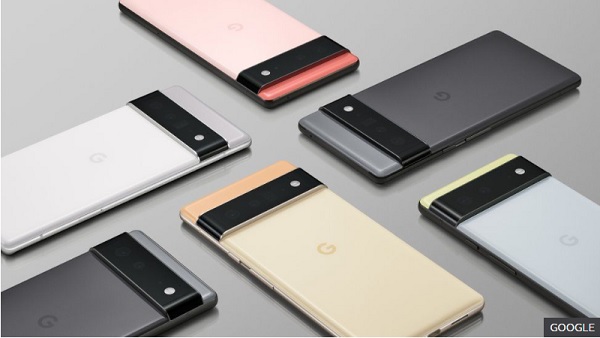
Google has unveiled its latest smartphone, containing the tech giant's first self-designed computer chip.
The Pixel 6 contains Google's "Tensor" processor, which it says enables new phone features powered by artificial intelligence and machine learning.
It is also the first phone in the series with a "Pro" model, designed to compete at the high end of the market.
"The whole goal when we started was to reach this point," said Rick Osterloh, Google's head of devices.
"Really, this is our original vision that we're finally able to get to after building a lot of capabilities both in technology and in product development capabilities," he told the BBC.
Google owns and operates the Android platform, used by almost every mobile phone maker apart from Apple. But the top end of the Android market has been dominated by other smartphone brands such as Samsung, whose phones can cost more than £1,000.
Google's Pixel line has often been priced in the middle of the market.
But the new Pixel 6 will retail for £599/$599, while the Pro model will cost £849/$899. bringing it closer to the price of competing top-end devices.
That is the same launch price for the base model as the Pixel 5, which had, Google said at the time, been designed for "an economic downturn".
"Obviously, there's a lot of technology and these are expensive, for sure, but we're trying to offer users good value despite the fact that these are flagships," Mr Osterloh said.

